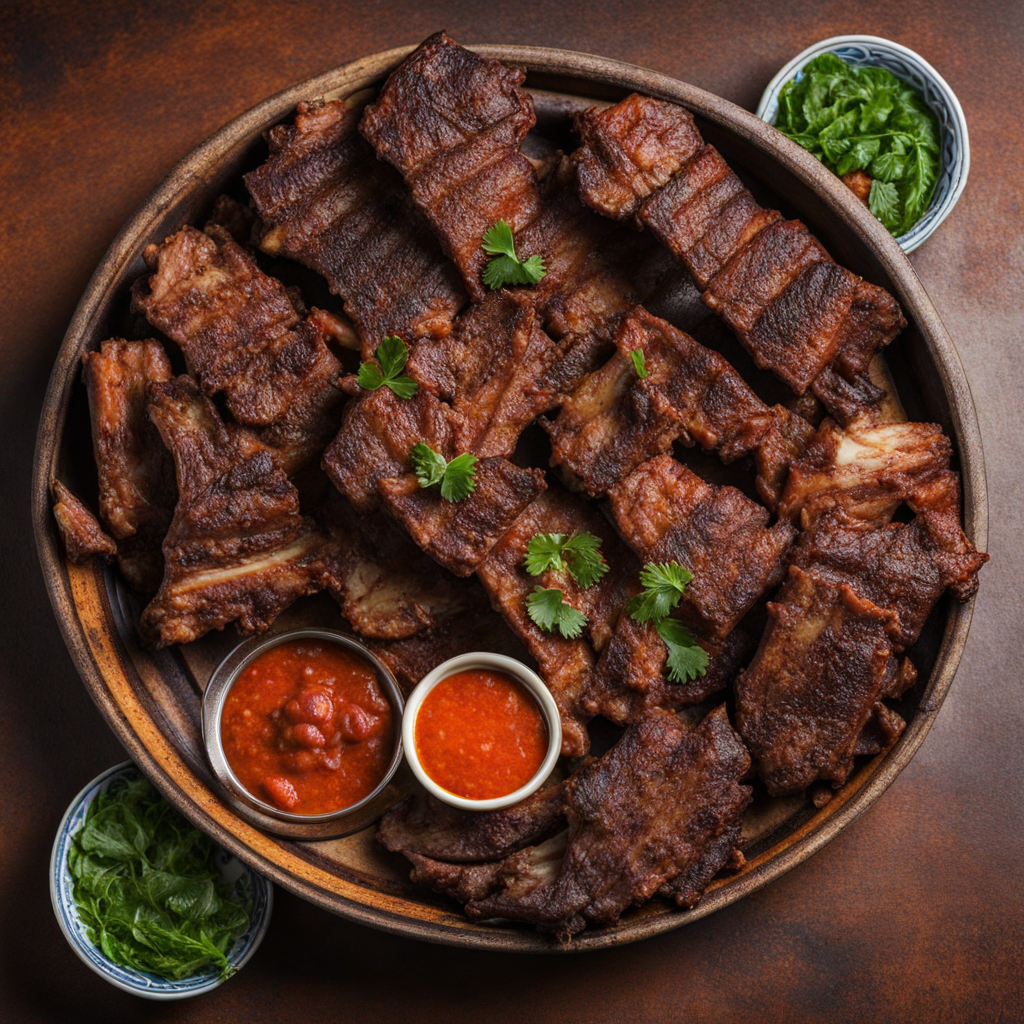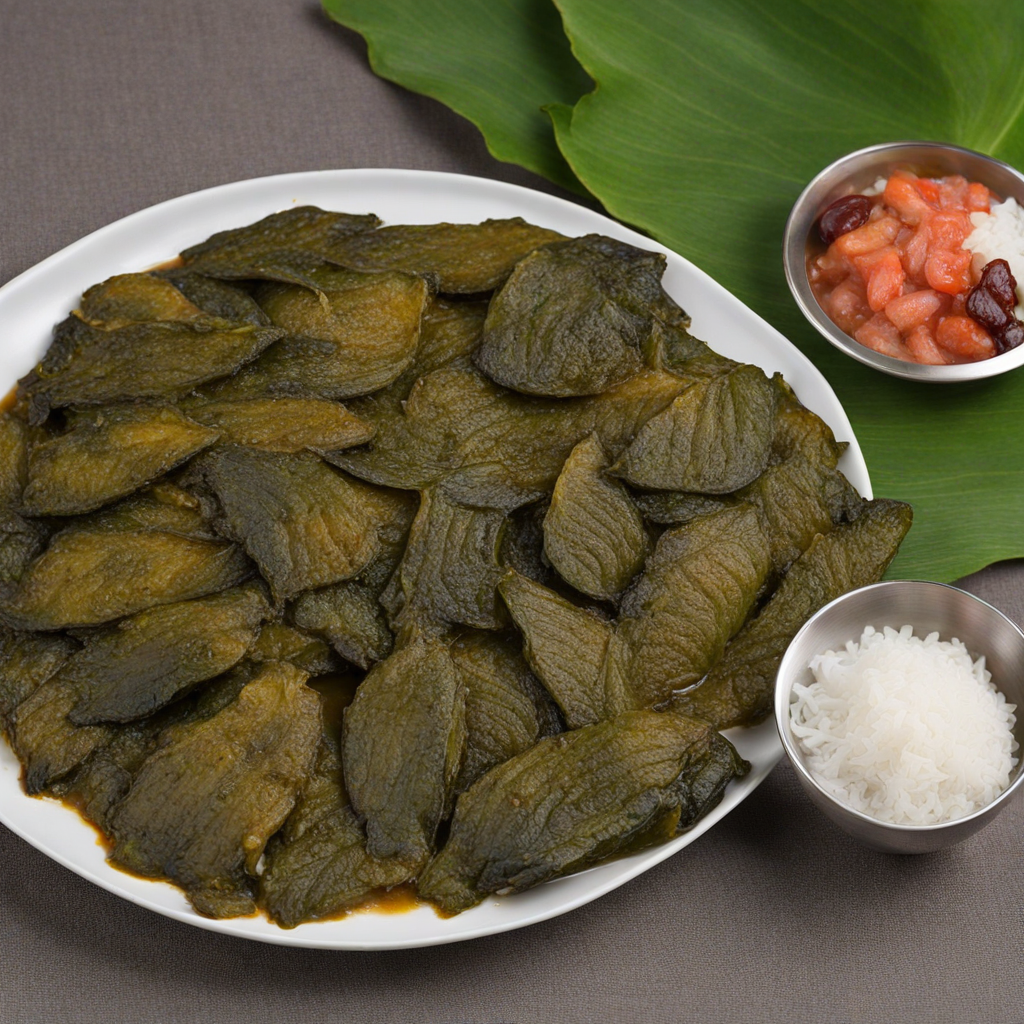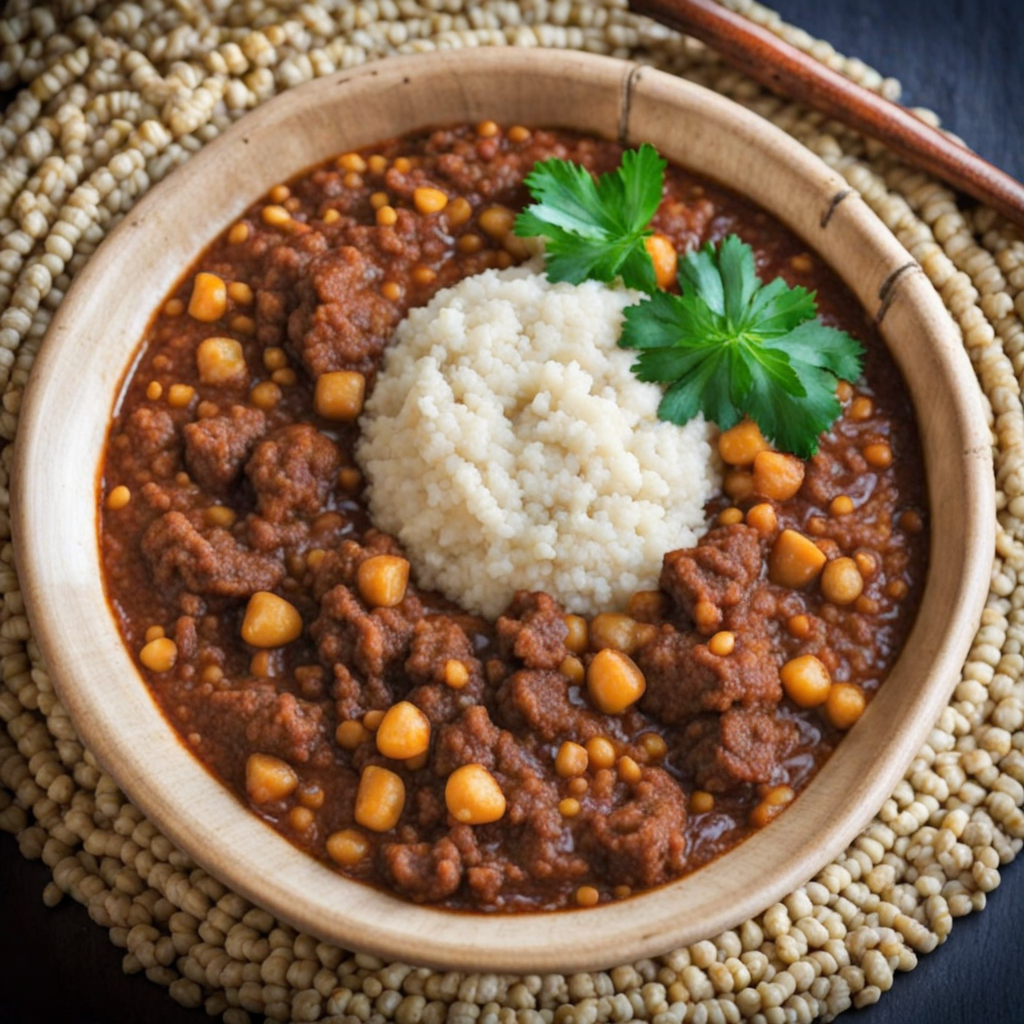Beignets de Bananes
Beignets de Bananes are a delightful Congolese treat that captures the essence of the region's vibrant culinary culture. These sweet banana fritters are made primarily from ripe bananas, which are mashed and mixed with a few simple ingredients, including flour, sugar, and a pinch of salt. The batter is then spooned into hot oil, where it transforms into golden-brown puffs that are crispy on the outside and soft on the inside. The natural sweetness of the bananas shines through, creating a flavor profile that is both comforting and satisfying, making them a popular snack or dessert among both locals and visitors alike.
The preparation of Beignets de Bananes is often a communal activity, bringing together family and friends who gather to enjoy the process as much as the end result. These fritters can be served plain or dusted with powdered sugar, and they pair beautifully with a side of fresh fruit or a drizzle of honey for added indulgence. The aroma of frying bananas fills the air, creating an inviting atmosphere that draws people in and tantalizes their taste buds, promising a delightful experience with each bite.
How It Became This Dish
The History of Beignets de Bananes: A Culinary Delight from Congo Origins: The Banana's Journey to the Heart of Africa Beignets de Bananes, or banana fritters, are a beloved treat in Congolese cuisine, showcasing the rich agricultural heritage of the Democratic Republic of the Congo (DRC) and the Republic of the Congo. The origin of the banana itself can be traced back to Southeast Asia, where it was cultivated as early as 5000 BCE. It gradually made its way to Africa through trade routes, with the earliest records of its presence on the continent dating back to the 15th century. In the Congo, bananas adapted remarkably to local soils and climates, becoming a staple food source. The DRC is home to numerous varieties of bananas, including the cooking banana, or plantain, which is often used in the preparation of Beignets de Bananes. The adaptability of the banana allowed it to thrive in the region, establishing itself as a crucial part of the Congolese diet and cultural identity. Cultural Significance: A Symbol of Community and Celebration In Congolese culture, food plays an essential role in social gatherings and communal activities. Beignets de Bananes is more than just a snack; it symbolizes hospitality and joy, often served during celebrations, family gatherings, and communal feasts. The preparation of these fritters involves the participation of family members, reinforcing bonds within the community. Banana fritters are deeply rooted in Congolese traditions, often associated with festivities such as weddings, birthdays, and religious celebrations. The act of gathering ingredients and cooking together fosters a sense of unity and shared heritage. Additionally, Beignets de Bananes are sometimes sold by street vendors, providing a livelihood for many and contributing to the vibrant street food culture in Congolese cities. Development Over Time: From Tradition to Modernity The recipe for Beignets de Bananes has evolved over time, influenced by local customs, available ingredients, and the changing dynamics of Congolese society. Traditionally, the fritters were made using ripe bananas, flour, sugar, and a hint of salt, with variations incorporating spices or additional flavorings such as vanilla or coconut. The bananas are mashed and mixed with the other ingredients to form a batter, which is then deep-fried until golden brown. The result is a soft, sweet interior with a crispy exterior, often served warm. As globalization and urbanization have progressed, so too has the way Beignets de Bananes are enjoyed. In urban areas, these fritters have found a place in cafes and restaurants, often presented in modern culinary styles, while still maintaining their authentic flavor. The introduction of new cooking techniques and ingredients—such as the use of baking powder for a lighter texture—has allowed chefs to experiment with the classic recipe, appealing to a broader audience. Moreover, the diaspora of Congolese people around the world has contributed to the spread of Beignets de Bananes beyond their homeland. In cities with significant Congolese communities, such as Brussels, Paris, and Washington, D.C., these fritters have become a symbol of cultural pride, allowing Congolese expatriates to share a taste of home with others. Food festivals and cultural events often feature Beignets de Bananes, serving as a bridge to connect people of different backgrounds and fostering cross-cultural appreciation. Contemporary Relevance: A Culinary Icon Today, Beignets de Bananes are not just a nostalgic dish but a culinary icon that reflects the resilience and creativity of Congolese cuisine. They are celebrated for their versatility, being enjoyed as a snack, dessert, or even a breakfast item. The fritters can be served plain, dusted with powdered sugar, or accompanied by sauces such as chocolate or fruit coulis, allowing for a modern twist that appeals to diverse palates. Furthermore, the growing interest in traditional and indigenous foods has reignited a passion for dishes like Beignets de Bananes. Chefs and home cooks alike are rediscovering the importance of local ingredients and traditional preparation methods, elevating the dish within both national and international culinary scenes. This resurgence aligns with a broader movement towards sustainability and the recognition of the cultural significance of food. Conclusion: A Taste of Heritage Beignets de Bananes encapsulate the essence of Congolese culture, history, and community. From their humble origins as a staple food to their current status as a cherished treat, these banana fritters embody the spirit of togetherness and celebration. As they continue to evolve and adapt to modern culinary trends, Beignets de Bananes remain a symbol of Congolese heritage, inviting people to explore the rich flavors and stories woven into each bite. Whether enjoyed at home, in a bustling street market, or at a cultural festival, Beignets de Bananes serve as a delicious reminder of the importance of food in connecting us to our roots and each other.
You may like
Discover local flavors from Congo







